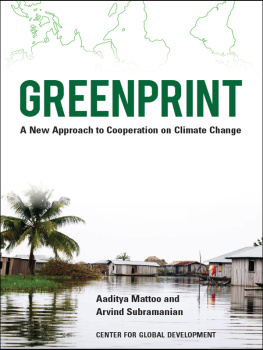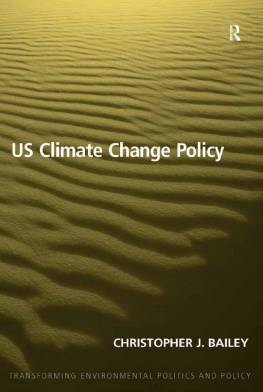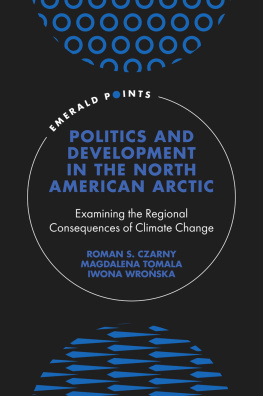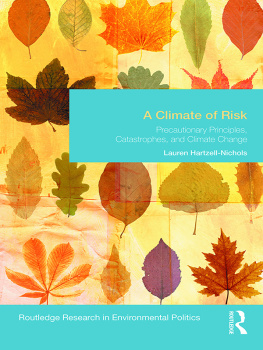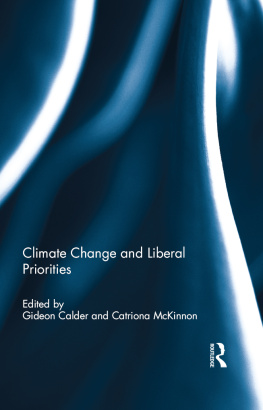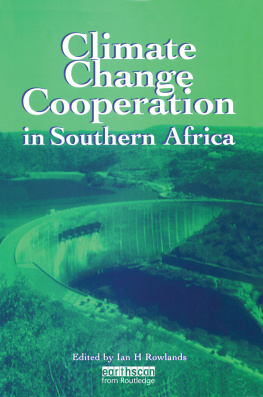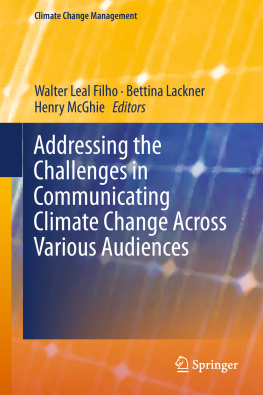Copyright 2013
CENTER FOR GLOBAL DEVELOPMENT
1800 Massachusetts Avenue, N.W., Washington, D.C. 20036
www.cgdev.org
All rights reserved. No part of this publication may be reproduced or transmitted in any form or by any means without permission in writing from the Center for Global Development.
Library of Congress Cataloging-in-Publication data
Mattoo, Aaditya.
Greenprint: a new approach to cooperation on climate change / Aaditya Mattoo and Arvind Subramanian.
p. cm.
Includes bibliographical references.
ISBN 978-1-933286-79-2 (pbk.: alk. paper)
1. Economic developmentEnvironmental aspects. 2. Developing countriesEconomic conditions. 3. Climate change mitigationInternational cooperation. I. Subramanian, Arvind. II. Title.
HD75.6.M396 2012
363.738'74dc23
2012040591
Greenprint: A New Approach to Cooperation on Climate Change may be ordered from: Brookings Institution Press, c/o HFS, P.O. Box 50370, Baltimore, MD 21211-4370 Tel.: 800/537-5487; 410/516-6956; Fax: 410/516-6998 www.brookings.edu/press
is adapted from Aaditya Mattoo and Arvind Subramanian, Equity in Climate Change: An Analytical Review, World Development 40(6): 108397. 2011 Elsevier Ltd. All rights reserved.
is adapted from Nancy Birdsall and Arvind Subramanian, Energy Needs and Efficiency, Not Emissions: Re-framing the Climate Change Narrative, CGD Working Paper 187 (Washington: Center for Global Development, 2009). 2009 Center for Global Development. Some rights reserved.
is adapted from Aaditya Mattoo, Arvind Subramanian, Dominique van der Mensbrugghe, and Jianwu He, Can Global Decarbonization Inhibit Developing Country Indistrialization? The World Bank Economic Review 26(2): 269319. 2011 Aaditya Mattoo. All rights reserved.
is adapted from Aaditya Mattoo, Arvind Subramanian, Dominique van der Mensbrugghe, and Jianwu He, Reconciling Climate Change and Trade Policy, CGD Working Paper 189 (Washington: Center for Global Development, 2009). 2009 Center for Global Development. Some rights reserved. An adaptation is forthcoming as Aaditya Mattoo, Arvind Subramanian, Dominique van der Mensbrugghe, and Jianwu He, Trade Effects of Alternative Carbon Border-Tax Schemes, Review of World Economics.
To delay acting on climate change is to run great risks of fundamentally rewriting the relationship between human beings and the planet. The risks of inaction, in the lifetime of children born today, include the potential movement of hundreds of millions of peoplepossibly billionswith devastating effects on livelihoods and living standards across the world. Yet discussion and action in much of the rich world is atrophied, and in emerging-market and developing countries there is concern that action on climate change will impede the battle against poverty in the next few decades.
There is a way forward: we must understand that the alternative low-carbon growth paths can be very attractive and that the transition to them from high-carbon growth paths will be full of discovery. The only path that is sustainable is the medium-term path of growth and poverty reduction. The issues of climate change, growth, and poverty reduction are inextricably intertwined. Failure to manage climate change will undermine development and poverty reduction; failure to promote development and reduce poverty will further exacerbate climate change.
A new energyindustrial revolution is needed. Realizing this transformation will require both leadership and collaboration. It now looks as if that leadership will have to come from the emerging-market countries and the developing world. But the rich cannot retreat from their responsibility to help with both resources and technologies and to take strong action to reduce their emissions. It is time to break out of the old cash for cuts and zero-sum approaches that have driven earlier discussions and models of international negotiations on climate change. That realization has begun in Cancun and Durban, with the ideas of equitable access to sustainable development and the increasing commitment of China, India, and others to new technologies.
It is the emerging and developing nations that are undergoing economic growth and thus emission growth, and these countries are also the ones hit earliest and hardest by climate changealthough we are all at great risk. It is time to accelerate action, and to do that we must look to the developing world to chart a path and to the rich world to both act strongly in support and share leadership through its own actions and examples. This important book, in its treatment of international action on climate change, sets forth a detailed and sensible way forward. It should be read by all of those who are involved in economic development and international action on climate change.
Lord Nicholas Stern
London
November 2012
The Center for Global Development focuses on policies and actions of the rich and powerful that spur or impede the pace of development for the worlds poor. Aid, debt relief, open markets for developing-country exports, and more open borders to allow migration: these are widely seen as development issues. They generate, if not consensus, then at least a shared framework within which debate takes place.
From its early years, CGD has been concerned with adding climate change to that framework. Senior fellow emeritus David Wheeler has published more than a dozen CGD working papers on climate and is the architect of two emissions-mapping tools, Carbon Monitoring for Action (CARMA), which tracks power plants, and Forest Monitoring for Action (FORMA), which uses satellite data to track tropical deforestation. His more recent work estimates the vulnerability of 233 countries to three major effects of climate change (weather-related disasters, sea-level rise, and reduced agricultural productivity). William Clines 2007 book, Global Warming and Agriculture: Impact Estimates by Country (CGD and the Peterson Institute for International Economics), revealed the stakes for developing countries: a projected 45 percent reduction in agricultural productivity in India and similar losses in much of sub-Saharan Africa.
Climate change is a natural addition to CGDs work because poor people in the developing world are feeling its impacts first and worst in some considerable part because high-income countries are responsible for the bulk of greenhouse gas emissions causing climate change. But climate change is also very different because the issue is no longer one of rich versus poor. Some developing countries are now major emitters, and the developing world accounts for more than half of all current greenhouse gases. To be effective, responses to climate change must address developing countries needs, including their right to development, but developing countries are now so big that they must also actively contribute to remedies. In other words, climate change requires a genuinely cooperative solution, involving rich and poor, in contrast to CGDs first-generation issues, which focused on rich-country actions.



